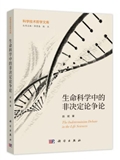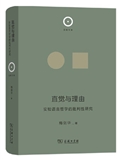Culture
-
Yudai Bridge at Xinfeng County, Jiangxi Province was influenced by Hakka culture. The Chinese character “qiao” means “brid…[详细]12-29-2017
-
The Fengyu (Wind and Rain) Bridge at the Maogong County, Guizhou Province (PHOTO: DU JUANJUAN/XINHUA) The Lianhua (Lotus Flower) Bridge in the…[详细]12-29-2017
-
The instruments in the tomb were all of high quality. Moreover, there are inscriptions about music on each bell, attachments, and frame. [详细]12-21-2017
-
Studies showed that the unique structure and hewa shape, or closed-tile shape, as well as bell walls of uneven thickness enabled the device to produ…[详细]12-21-2017
-
This painting shows Li Bai drinks with the moon and his own shadow amid the flowers. The unique aspects of Chinese jiu culture, and the way …[详细]12-14-2017
-
二人同心,其利断金;同心之言,其臭如兰 er ren tongxin, qi li duan jin; tongxin zhiyan, qi xiu ru lan Tongxin means “the same mind”…[详细]12-07-2017
-
A lan-bamboo-rock painting by Ma Xianglan The works of ancient female Chinese painters are part of the Chinese history of art. Paintings by …[详细]12-07-2017
- In 221 BCE, the Qin wars of conquest brought an end to the Warring States Period, a tumultuous era marked by…MORE
- The tradition of painting coffins is deeply rooted in Han culture, and the origin of the lian-bi patterns ca…MORE
- China’s Great Wall dates back as early as to the Spring and Autumn period.MORE
- The Miaodigou culture was viewed as the heyday of painted pottery.MORE
- Xu Zhimo was known for his efforts to set Chinese poetry free from the constraints of its traditional forms,…MORE
-
Let me state that I am against a certain “apologetic” stance taken by the entire field of the humanities r…[详细]













